Joel and Ethan Coen got their start 30 years ago with their debut film, Blood Simple. They have gone on to write and direct classic American films like Raising Arizona, Fargo and The Big Lebowski. On the other hand, they are also behind Burn After Reading, The Ladykillers and Intolerable Cruelty. It’s safe to say that they aren’t the most consistent filmmakers. Though, like other auteurs, Wes Anderson and Quentin Tarantino, they have a signature style for every movie they work on. The following tropes happen in nearly every Coen brothers film.
5 – Heavy Reliance on Music
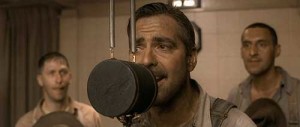 Joel Coen got his start editing music videos and it seems evident with the heavy use and reliance of music in his filmography. The pair of Coen brothers movies that could almost double as musicals are Inside Llewyn Davis and O Brother, Where Art Thou. The Coens have a knack for choosing the perfect songs to match specific scenes. In The Big Lebowski, the Dude has a fever dream that’s basically an acid trip old-school Hollywood musical production called Gutterballs. This entire dream is set to the Kenny Rogers song, “Just Dropped In (To See What Condition My Condition Was In).” I could also mention the use of “Danny Boy” in the gruesome shootout scene in Miller’s Crossing, but that just makes me never want to hear that song again.
Joel Coen got his start editing music videos and it seems evident with the heavy use and reliance of music in his filmography. The pair of Coen brothers movies that could almost double as musicals are Inside Llewyn Davis and O Brother, Where Art Thou. The Coens have a knack for choosing the perfect songs to match specific scenes. In The Big Lebowski, the Dude has a fever dream that’s basically an acid trip old-school Hollywood musical production called Gutterballs. This entire dream is set to the Kenny Rogers song, “Just Dropped In (To See What Condition My Condition Was In).” I could also mention the use of “Danny Boy” in the gruesome shootout scene in Miller’s Crossing, but that just makes me never want to hear that song again.
4 – Bad Ending or No Ending
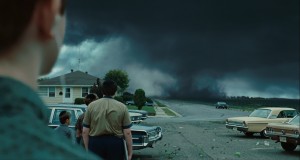 Remember how great No Country for Old Men was? Then 2/3 through the movie’s duration, they <spoiler alert> kill the main character without ever showing his last stand. Tommy Lee Jones’s character ends the movie by talking about how he himself is outdated in a very dry fashion. It’s hardly satisfying and gives the movie a bad aftertaste. <end spoiler> Then there’s the remake of True Grit. The Coens could have easily ended the movie with Rooster Cogburn riding his horse furiously under the stars trying to save the life of Mattie. But instead, it goes on for 20 minutes and we have to catch up with an old Mattie as she tries to track down Rooster, only to find that he died weeks before she arrived. Thanks for the bummer guys. I understand these movies were adaptations, but they could have tried to improve on the source material. The ending of A Serious Man is so ambiguous that it’s barely worth watching the movie leading up to it because it’s so frustrating.
Remember how great No Country for Old Men was? Then 2/3 through the movie’s duration, they <spoiler alert> kill the main character without ever showing his last stand. Tommy Lee Jones’s character ends the movie by talking about how he himself is outdated in a very dry fashion. It’s hardly satisfying and gives the movie a bad aftertaste. <end spoiler> Then there’s the remake of True Grit. The Coens could have easily ended the movie with Rooster Cogburn riding his horse furiously under the stars trying to save the life of Mattie. But instead, it goes on for 20 minutes and we have to catch up with an old Mattie as she tries to track down Rooster, only to find that he died weeks before she arrived. Thanks for the bummer guys. I understand these movies were adaptations, but they could have tried to improve on the source material. The ending of A Serious Man is so ambiguous that it’s barely worth watching the movie leading up to it because it’s so frustrating.
3 – He Has a Burton-esque Reliance on the Same Actors
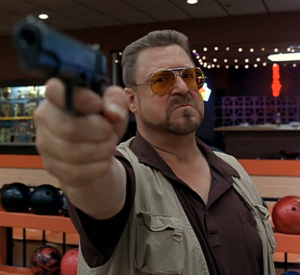 Much like Tim Burton, the Coens have a handful of favorite go-to actors. Similar to the coworker-marriage of Burton and Helena Bonham Carter, Joel Coen and wife, Frances McDormand work together regularly. She has appeared in Miller’s Crossing, Blood Simple, Raising Arizona, Fargo, The Man Who Wasn’t There and Burn After Reading. Another standard Coen favorite is John Turturro who starred in The Big Lebowski, O Brother Where Art Thou, Barton Fink and Miller’s Crossing. Another frequent favorite is scene-stealer John Goodman who appears in six Coen flicks. They also have a particular liking for that guy who was in Fargo, I think his name is Steve (sorry).
Much like Tim Burton, the Coens have a handful of favorite go-to actors. Similar to the coworker-marriage of Burton and Helena Bonham Carter, Joel Coen and wife, Frances McDormand work together regularly. She has appeared in Miller’s Crossing, Blood Simple, Raising Arizona, Fargo, The Man Who Wasn’t There and Burn After Reading. Another standard Coen favorite is John Turturro who starred in The Big Lebowski, O Brother Where Art Thou, Barton Fink and Miller’s Crossing. Another frequent favorite is scene-stealer John Goodman who appears in six Coen flicks. They also have a particular liking for that guy who was in Fargo, I think his name is Steve (sorry).
2 – The Protagonist is Basically Pathetic
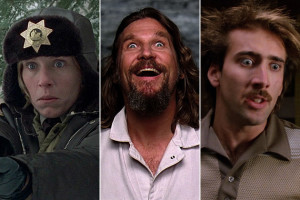 There are very few “good” guys in the Coen Brothers movies. They are typically more gray. The most moral hero of the Coen-verse is Marge Gunderson from Fargo. But, she is shown as a midwestern naive character. Their other protagonist who bumbles his way through his journey is the Dude. Nicholas Cage’s McDunnough in Raising Arizona is an anti-hero that you can’t help but sympathize with. Every character in Burn After Reading is basically in it for themselves. This trope of relying on an anti-hero is interesting because there are some very extreme villains in their movies, yet not many extremely ethical heroes to oppose them.
There are very few “good” guys in the Coen Brothers movies. They are typically more gray. The most moral hero of the Coen-verse is Marge Gunderson from Fargo. But, she is shown as a midwestern naive character. Their other protagonist who bumbles his way through his journey is the Dude. Nicholas Cage’s McDunnough in Raising Arizona is an anti-hero that you can’t help but sympathize with. Every character in Burn After Reading is basically in it for themselves. This trope of relying on an anti-hero is interesting because there are some very extreme villains in their movies, yet not many extremely ethical heroes to oppose them.
1 – No Main Character Arc
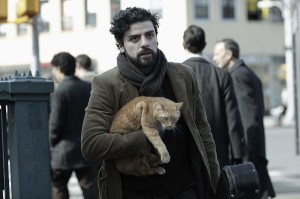 The Coen Brothers universe is built on quirky and memorable characters. That point is made more interesting because their characters rarely ever change, especially the main characters. Most of them stay flat from start to finish. This was very apparent in Llewyn Davis. He is a pathetic man who starts the movie out as worthless. You would think his journey was about finding peace in mediocrity, but as the ending attests, he will always be on a constant hopeless path. In No Country For Old Men, each character stayed the same throughout. The Coen brothers break every screenwriting rule seemingly on purpose. I’d argue that none of the main characters ever get the chance to evolve.
The Coen Brothers universe is built on quirky and memorable characters. That point is made more interesting because their characters rarely ever change, especially the main characters. Most of them stay flat from start to finish. This was very apparent in Llewyn Davis. He is a pathetic man who starts the movie out as worthless. You would think his journey was about finding peace in mediocrity, but as the ending attests, he will always be on a constant hopeless path. In No Country For Old Men, each character stayed the same throughout. The Coen brothers break every screenwriting rule seemingly on purpose. I’d argue that none of the main characters ever get the chance to evolve.








